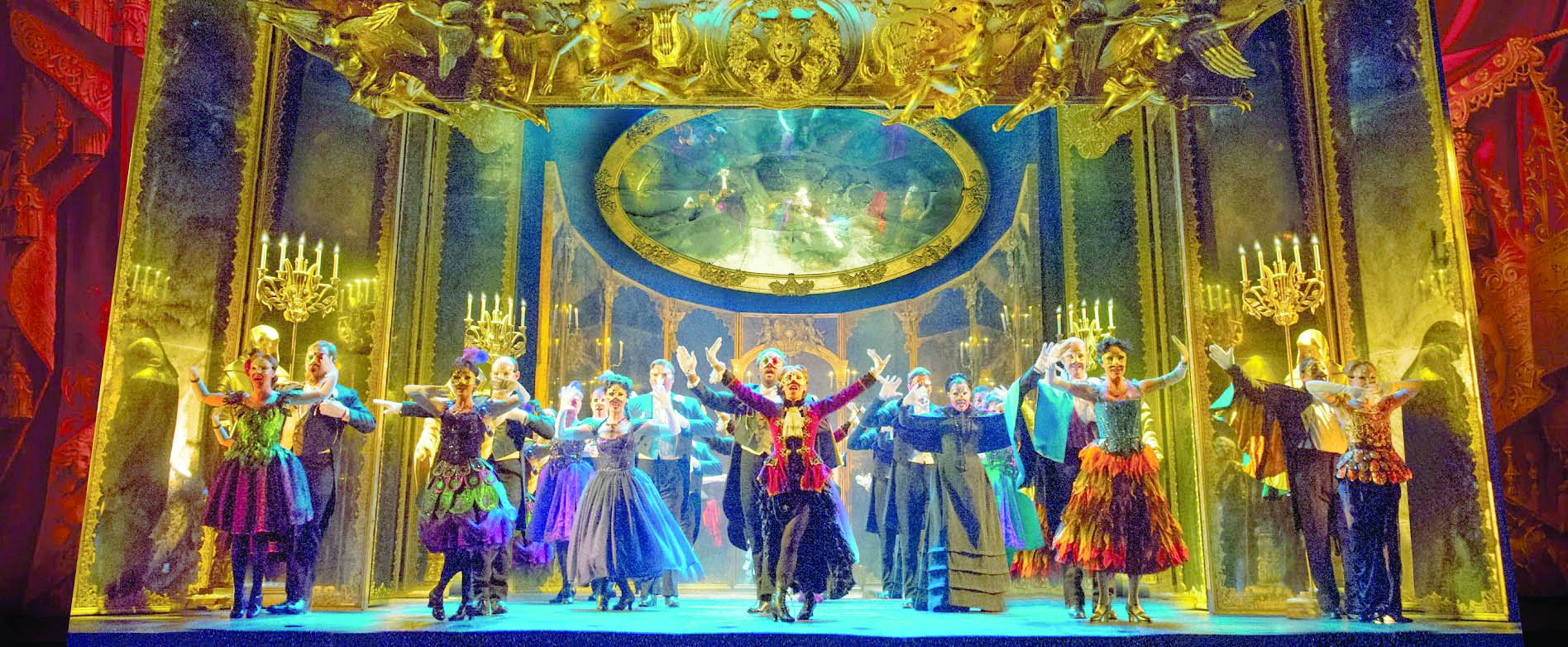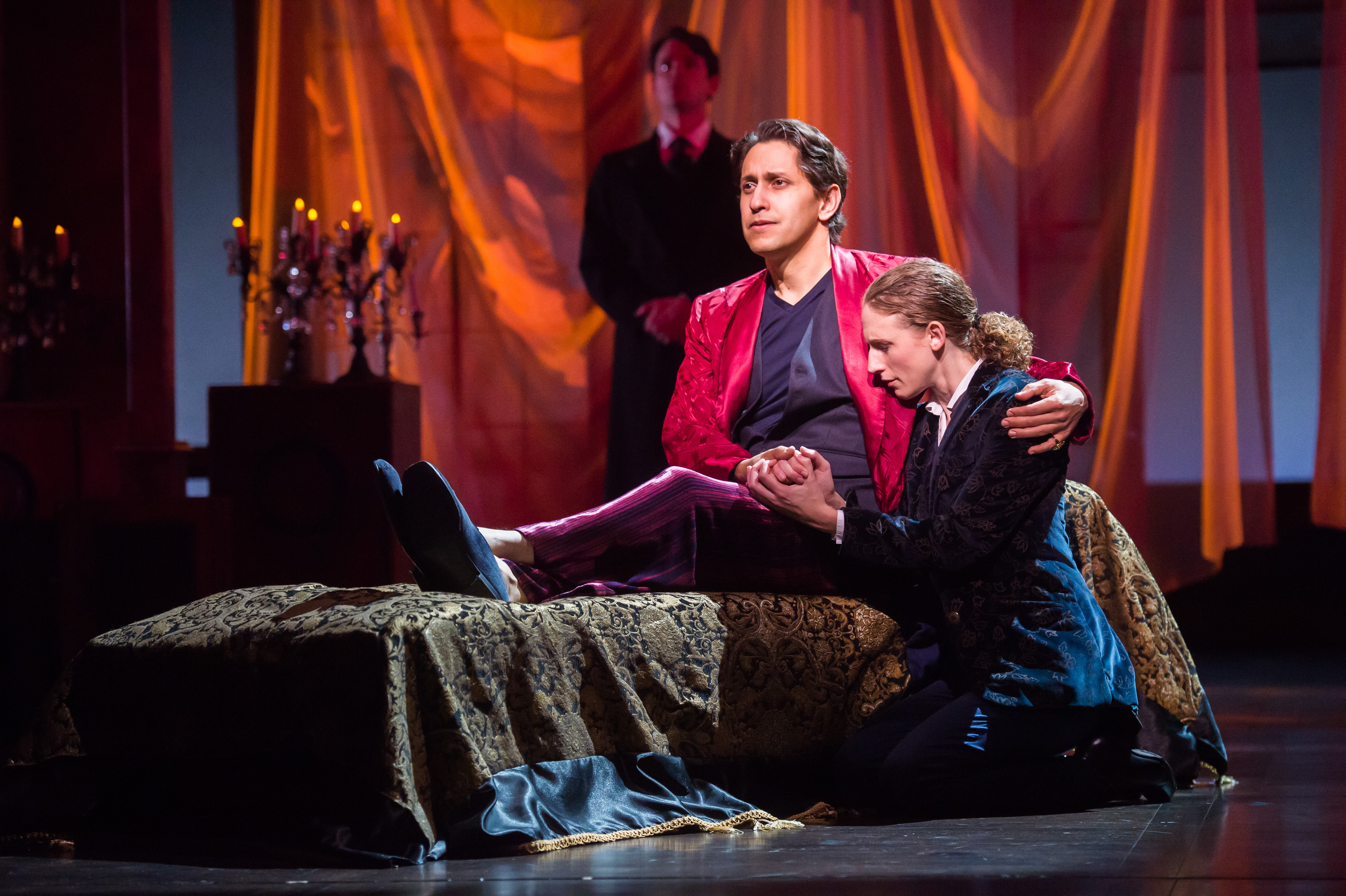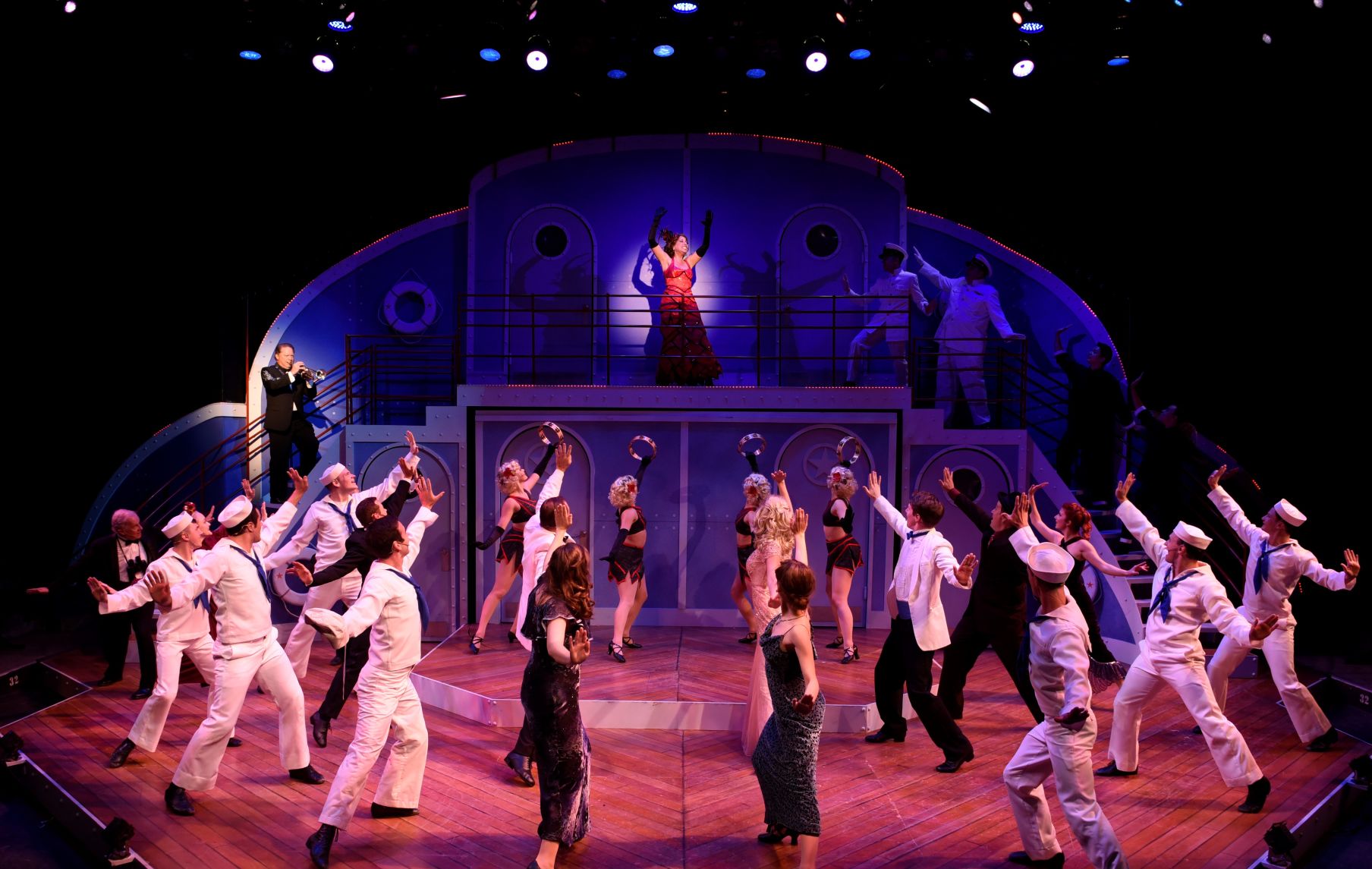Blank Canvas’ ‘Equus’ reins in pyrotechnics to reveal raw emotion
By Bob Abelman
Peter Shaffer’s 1975 Tony Award-winning “Equus,” at Blank Canvas, focuses on a single, inexplicable and horrific crime: the blinding of six horses with a metal spike by a 17-year-old boy.
The play largely unfolds through a series of lengthy confessional monologues by psychiatrist Dr. Martin Dysart (Russell Kunz) and – through flashbacks, dream sequences or under hypnosis – by the boy, Alan Strang (Antonio DeJesus), his distraught and devoutly religious mother (Claudia Esposito), and his strict and socialist father (Andrew Narten).
Throughout the play, Dysart is attempting to discover the deeply rooted reason for this violent act, find the cause of the boy’s psychosexual fixation on horses, and rid him of his emotional and mental anguish. While doing so, he reveals his own personal and professional crises. He lives in a loveless marriage. He is unable to experience the same passion expressed by his young patient. And he fears that by stripping Alan Strang of his fantasies and immense pain, his cure will be removing the very things that make the boy human.
Given the wordy, thematically complex and often erotic nature of this play (there is nudity), productions of “Equus” are often painted with broad strokes that embellish the boy’s fantasies and capture his psychosis with belching smoke machines, assaulting video projections and loud soundtracks.
Director Patrick Ciamacco’s staging does not.
His light, sound and scenic designs are simple and – by serving to merely isolate and dramatize individual performances – they are very effective. Luke Scattergood and Noah Hrbek’s costuming includes the creation of six horse heads sculpted from wire and leather that are worn by bare-chested performers (Daryl Kelley, Jason Falkofsky, Zac Hudak, Evan Martin, Anthony Salatino and David Turner) when horses appear in reality and fantasy.
By placing performances front and center rather than theatrical pyrotechnics, we are able to marvel at the astoundingly natural ones turned in during this production by Esposito and Narten as the parents, Chris Bizub as Harry Dalton, the owner of the mangled horses, and Sarah Blaubaugh as Jill Mason, Alan’s one and only friend. Even Amiee Collier as the magistrate and Katie Wells as the nurse humanize rather one-dimensional roles created to help set up and move along the story.
As Alan Stran, DeJesus is remarkable. Though a tad inaudible at times, and often at crucial times, he bares his soul, musters raw emotion, and does so unflinchingly. The boy’s youth and delusion seem so authentic that it is tempting to call Juvenile and Family Services during intermission.
Only Kunz as Dysart fails to deliver, in large part due to an insecurity with his lines. Inappropriate hesitations and second-guessing undermines this character’s conviction, keeps the actor disengaged with fellow performers, and disrupts the important rhythms essential to this intense play. Several pages in the script may have been skipped as well.
Still, Blank Canvas’ production of “Equus” is a good one and should a more effective Dysart show up in subsequent performances, this will be a great one. CV
On stage
“Equus”
WHERE: Blank Canvas Theatre, 1305 W. 78th St., Cleveland
WHEN: Through Aug. 26
TICKETS & INFO: $18, call 440-941-0458 or visit blankcanvastheatre.com
Bob Abelman covers professional theater and cultural arts for the Cleveland Jewish News. Follow Bob at Facebook.com/BobAbelman3. 2017 Ohio AP Media Editors best columnist.
Originally published in the Cleveland Jewish News on Aug. 14, 2017.
Lead image: From left, Russell Kunz as Martin Dysart and Antonio DeJesus as Alan Strang. Photo / Andy D











